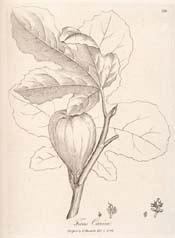M E D I C I N E I N A N C I E N T E G Y P T

A Miscellany of Healing Prescriptives of the Ancient Egyptians
(All of these recipes are authentic and were taken from the Papyrus Ebers.)
Disclaimer: MSU is not responsible for any problems resulting from the use of these recipes.
Cure for Diarrhea:

1/8th cup figs and grapes, bread dough, pit corn, fresh Earth, onion, and elderberry.
Cure for Indigestion:
Crush a hog's tooth and put it inside of four sugar cakes. Eat for four days.
Cure for Burns:
Create a mixture of milk of a woman who has borne a male child, gum, and, ram's hair. While administering this mixture say: Thy son Horus is burnt in the desert. Is there any water there?There is no water. I have water in my mouth and a Nile between my thighs. I have come to extinguish the fire.
Cure for Lesions of the Skin:
After the scab has fallen off put on it: Scribe's excrement. Mix in fresh milk and apply as a poultice.
Cure for Cataracts:
Mix brain-of-tortoise with honey. Place on the eye and say:
There is a shouting in the southern sky in darkness, There is an uproar in the northern sky, The Hall of Pillars falls into the waters. The crew of the sun god bent their oars so that the heads at his side fall into the water, Who leads hither what he finds? I lead forth what I find. I lead forth your heads. I lift up your necks. I fasten what has been cut from you in its place. I lead you forth to drive away the god of Fevers and all possible deadly arts.
Reference Used:
Brier, Bob. Ancient Egyptian Magic. Quill Press: New York, 1981.
The Egyptians were advanced medical practitioners for their time. They were masters of human anatomy and healing mostly due to the extensive mummification ceremonies. This involved removing most of the internal organs including the brain, lungs, pancreas, liver, spleen, heart and intestine. The Egyptians had (and this is an understatement) a basic knowledge of organ functions within the human body (save for the brain and heart which they thought had opposite functions). This knowledge of anatomy, as well as (in the later dynasties) the later crossover of knowledge between the Greeks and other culture areas, led to an extensive knowledge of the functioning of the organs, and branched into many other medical practices. Further, it was not uncommon in both early and later dynasties for scholars from ancient Greece and other parts of the Mediterranean to study the medical practitioners of Ancient Egypt. Of the most notable of these traveling scholars was, Herodotus and Pliny, both Greek scholars, whose contribution to the ancient and modern medical records, reached from the time of Ancient Egypt and into the modern era.

The practices of Egyptian medical practitioners ranged from embalming to faith healing to surgery and autopsy. The use of autopsy came through the extensive embalming practices of the Egyptians, as it was not unlikely for an embalmer to examine the body for a cause of the illness which caused death. The use of surgery also evolved from a knowledge of the basic anatomy and embalming practices of the Egyptians. From such careful observations made by the early medical practitioners of Egypt, healing practices began to center upon both the religious rituals and the lives of the ancient Egyptians.

The prescription for a healthy life, (which was almost always given by a member of the priestly caste) meant that an individual undertook the stringent and regular purification rituals (which included much bathing, and often times shaving one's head and body hair), and maintained their dietary restrictions against raw fish and other animals considered unclean to eat. Also, and in addition to a purified lifestyle, it was not uncommon for the Egyptians to undergo dream analysis to find a cure or cause for illness, as well as to ask for a priest to aid them with magic. This obviously portrays that religious magical rites and purificatory rites were intertwined in the healing process as well as in creating a proper lifestyle.
Anubis god of healers and embalmers.
Though Egyptian medical practices by no means could rival that of the present day physicians, Egyptian healers engaged in surgery, prescriptive, and many other healing practices still found today. Among the curatives used by the Egyptians were all types of plant (herbs and other plants), animal (all parts nearly) and mineral compounds. The use of these compounds led to an extensive compendium of curative recipes, some still available today. For example, yeast was recognized for its healing qualities and was applied to leg ulcers and swellings. Yeast's were also taken internally for digestive disorders and were an effective cure for ulcers.
Though the Egyptians were effective healers, they did not have a clear knowledge of cellular biology or of germ theory, so it would be inappropriate to attribute the use of Yeast's as an antibiotic; as the curative effects behind the use of antibiotics were not known until well into modern times. Yet one must admire the ingenuity of the Egyptians, which undoubtedly has it's place within the compendium of human medical history. The largest of these medicinal compendiums was compiled by Hermes (a healer of Greek origin who studied in Egypt), and consisted of six books. The first of these six books was directly related to anatomy, the rest served as a book of physic, and as apothecaries. Though Hermes was not the first to compile much of the information about Egyptian medical practices, beginning early on with the pharaoh Athothes (the second king of Egypt), the Egyptians are credited with being the first to use and record advanced medical practices.

For more information check out this site:
Medicine in Ancient Egypt